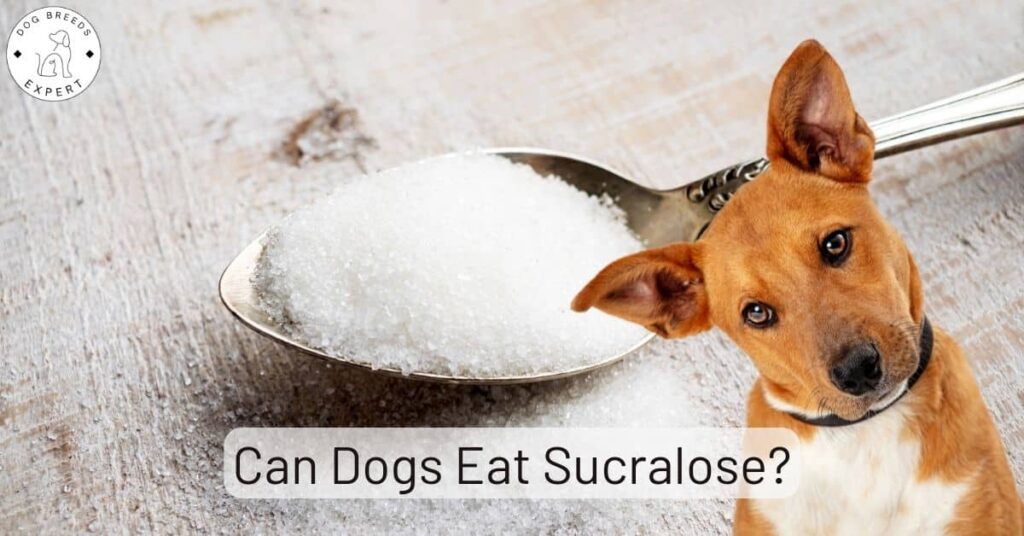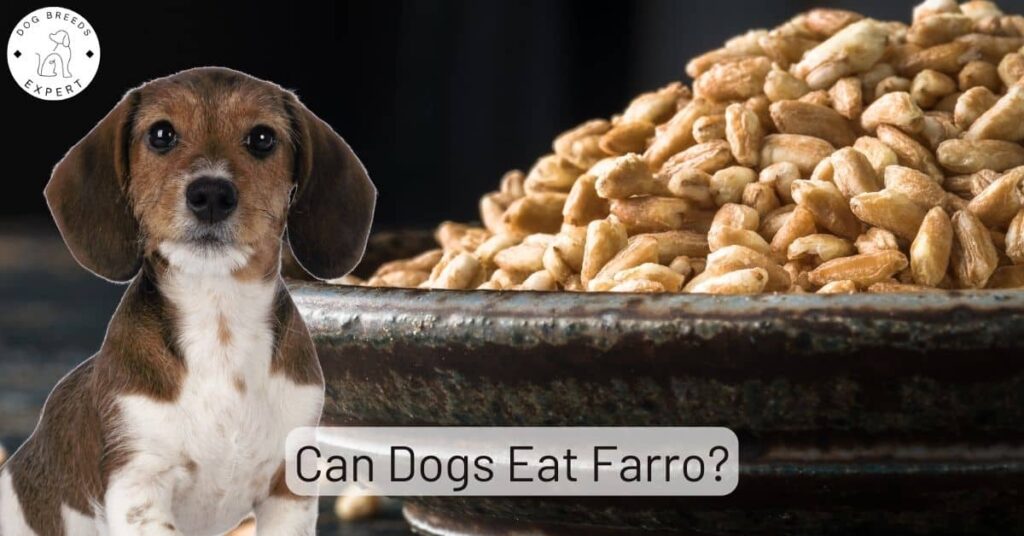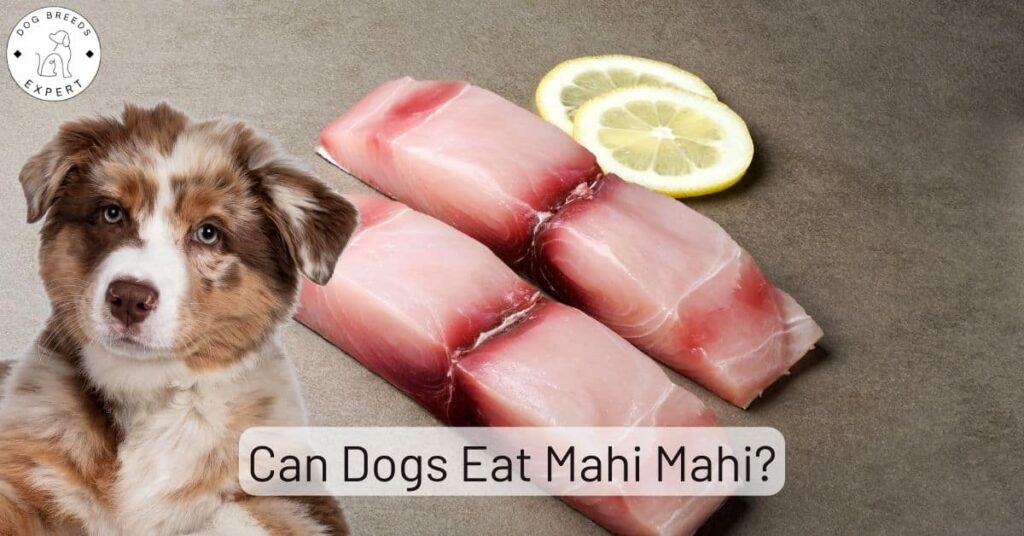Most artificial sweeteners, including Sucralose, are not toxic for dogs. The exception to this principle is Xylitol which should never be given to dogs. However, merely stating that a substance is not toxic, does not mean that the substance should be fed to a dog. It is important to consider the totality of the dietary impact on your pet.
Sucralose
Sucralose and other artificial sweeteners make some foods more palatable for humans by increasing their sweetness, without massive calories inputs. Human brains are wired in such a way that sugar releases chemicals in the brain, for example Serotonin, that make us feel good. This produces a desire to repeat that experience repeatedly.
Clearly we see sucralose as being harmless and as something which makes our food more pleasant. For humans this is undoubtedly true. This leads to the belief that any sweetener that is not toxic must be equally pleasurable for a dog.

Dogs do indeed prefer sweet foods over salty foods. It is thought that may be because in their ancestral past, hungry dogs would also occasionally eat sweet wild fruits.
Unfortunately, while sucralose is not toxic, it does often lead to stomach upsets if over consumed. It is also reported to cause diarrhea in dogs.
It is important to be aware of the broad range of products that potentially contain sucralose, and that it is possible to give a large dose to dogs without really realizing it. Sucralose is also known as Splenda®
Dogs can easily become addicted to sweet foods, in the same way as humans. Sugar is not an essential part of a dog’s diet and it is far better to feed your pet a diet that is appropriate to its age and more attuned to its carnivorous roots, with the occasional plain cooked veggies or safe fresh fruit.

Which Sweeteners are Harmful to Dogs, and Which are OK to use?
Group 1
This first group of sweeteners are not toxic to pet dogs and there are no warnings of issues they cause.
Erythritol
Typically used by humans following loc carb diets. This sweetener is not toxic for dogs.
Monk Fruit Sweetener
Originating in Southeastern Asia, the Monk Fruit or Lo Han Guo is up to 200 times sweeter than sugar, yet contains no calories.
Group 2
This second group of sweeteners are not toxic to pet dogs but are reported to cause stomach issues.
Aspartame
This incredibly sweet product is a highly concentrated sugar. It is known to be a potential cause of stomach discomfort if given to dogs.
Stevia
This increasingly popular sweetener is sourced from the South American plant with the scientific name Stevia Rebaudiana, and is extracted from the leaves. It is not toxic but can cause diarrhea in dogs.
Saccharine
Mostly found these days in low calorie drinks, this sweetener is not toxic to dog. As will other sweeteners in this group it may well cause stomach upsets.
Group 3
This third group sweeteners are toxic to pet dogs and should never be given to them.
Xylitol
Xylitol is extremely toxic to all dogs and should not be fed to them. .Even tiny amounts of this sweetener can cause seizures and death in dogs.
Read what the American Kennel Club has to say about sweeteners.
Feeding Dogs a Natural Diet

Dogs kept as pets are mostly carnivores, however they will also consume certain omnivore fare. There is a requirement to feed a comprehensive and balanced diet to your dog regardless of its age or the presence or absence of any health problems.This diet should not include food that has been artificially sweetened by extra sugar or sweeteners.
A canine diet consisting only of kibble is just OK. You may also give them a variety of cooked and raw meat, seafood, veggies, and grains.
While some dogs do well on a raw meat diet like chicken giblets, which is preferred by many owners, there are certain things to keep in mind. Dr. Leigh Davidson, a seasoned veterinarian, recommends the following:
- Some pet meat and bone products include preservatives that may be harmful to your dog’s health, so it is best to stick with meat that is fit for human consumption.
- Maintain spotless standards of food preparation to reduce the likelihood that you or your dog may get a bacterial illness caused by consuming contaminated ingredients.
- Dogs may consume modest amounts of prepared meat like boiling chicken or lamb, but the bones and any potentially poisonous elements, including onion sauces, should be avoided.
- As a special treat, you may give your dog sardines, tuna, or salmon in spring water, but make sure there are no bones in the fish.
- Feel free to add cooked pumpkin or raw shredded carrot to your dog’s dish if you’d like to increase the volume. Dr. Leigh claims that many dogs’ gastrointestinal health may be improved by adding cooked pumpkin or shredded carrot to their diet.
- Avoid giving your dog the whole bone; doing so might cause digestive issues.
- Eating one or two bones each week is sufficient to aid in the removal of plaque from teeth. Keep in mind that the bone has to be big enough that the dog can’t put it in its mouth whole, and that it needs to be raw since cooked bone might shatter and cause internal injury or clog the gut, both of which can be deadly.
The above dietary suggestions clearly do not include sugar or sweeteners, since they add nothing useful to a dog’s diet and have potential health issues if consumed.
Related
Can Dogs Eat Erythritol?
Erythritol is not toxic for dogs. It may be consumed in tiny amounts. However, like so many other sweeteners, it may cause stomach issues if eaten to excess.
Can Dogs Eat Yoghurt Containing Stevia?
Yogurts can frequently contain various types of artificial sweeteners, including the toxic xylitol. Yogurts containing stevia can be consumed but may result in stomach upset and sharp drops in blood pressure later.Since there are risks involved with feeding your dog a sweetened/flavored yogurt it is best to avoid them and if you insist on feeding your dog yogurt, it should be plain unsweetened yogurt. See what the American Kennel Club says.
Can Dogs Eat Allulose?
The sweetener allulose is derived from raisins, figs,and dates, It is not toxic for dogs.
Image Credits
StockMojo – Dog with Bowl on plain blue background
StockMojo – Dog with Ice Cream
StockMojo – Artificial Sweetener



